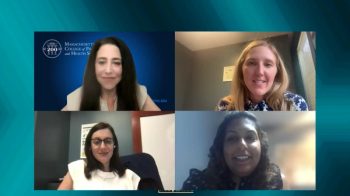
The panel concludes its discussion with key takeaways on the optimal care of patients with type 1 diabetes care and thoughts on unmet needs within the treatment space.

The panel concludes its discussion with key takeaways on the optimal care of patients with type 1 diabetes care and thoughts on unmet needs within the treatment space.

Focusing on logistical matters as it pertains to teplizumab administration, the panel discusses infusion site considerations, insurance coverage hurdles, and the process of getting patients approved.

Diabetes specialists outline the patient selection protocol for teplizumab and describe the teplizumab infusion process.

Experts on type 1 diabetes discuss the availability of local medical facilities that offer teplizumab screening and evaluation services for individuals at risk of progression of disease.

Amy Burton, MD, reviews findings from the TN-10 study investigating teplizumab, an anti-CD3 monoclonal antibody, for prevention of diabetes in relatives at risk for T1D.

Diabetes experts discuss the important role of teplizumab in delaying the onset of type 1 diabetes and provide insights on the drug’s mechanism of action.

Following audience polls, the panelists provide clinical insights into their screening practices for patients with type 1 diabetes, highlighting key antibodies they screen for.

Audience polls provide the panel insights into common screening practices for patients with type 1 diabetes.

The panel outlines the stages of type 1 diabetes, focusing on the importance of early intervention to prevent complications of the disease.

A panel of experts on type 1 diabetes (T1D) describe the prevalence and burden of the disease, highlighting the emotional and socio-economic burden extending beyond medical expenses.
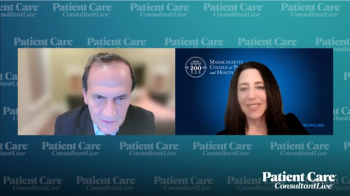
The expert panel concludes by examining strategies for managing hypoglycemia challenges related to dumping syndrome, particularly in the context of continuous glucose monitoring use.

The key opinion leaders explore strategies for incorporating continuous glucose monitoring into primary care diabetes management, highlighting essential takeaways from their comprehensive discussion.

Medical experts analyze the case of a 78-year-old woman with diabetes, evaluating the impact of continuous glucose monitoring on her treatment outcomes and overall diabetes management.

The panelists discuss the selection criteria for continuous glucose monitoring (CGM) candidates, identifying patient groups who would derive the greatest benefit from CGM use and those at higher risk of complications without such monitoring.

Key opinion leaders explore the advantages of remote medication adjustments facilitated by distant patient monitoring and the ability to view glucose data from afar, enhancing diabetes care management.

Medical experts in diabetes management examine a real-world case study, providing valuable insights into the clinical impact of continuous glucose monitoring systems and their role in enhancing patient management strategies.

The panel analyzes various continuous glucose monitoring (CGM) methods, detailing the advantages of each approach and sharing their preferred CGM systems for optimal patient care.

Key opinion leaders emphasize the significance of continuous glucose monitoring for diabetes patients, underscoring its advantages in enhancing physician practices and improving patient care strategies.
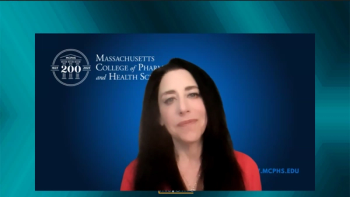
The panel of experts from UCSD concludes the discussion on delaying the onset of stage 3 T1D by providing key takeaways and clinical advice on the treatment of patients with this condition.
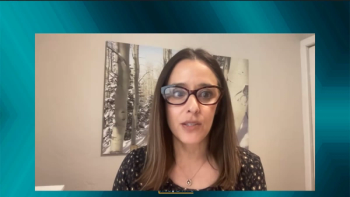
Focusing on the utilization of teplizumab, the expert panel from UCSD shares insights in how to select patients for this treatment and provide practical tips for the infusion process, and infusion location options.

The panel reviews the TN-10 trial investigating teplizumab, focusing on patient inclusion criteria, patient outcomes, and adverse reactions.

Diabetes specialists from UCSD discuss teplizumab, the first FDA-approved drug for delaying onset of T1D, highlighting its benefits and mechanism of action.

Schafer Boeder, MD and Andrea Stallings, PA delve into the intricacies of autoantibody screening tests for T1D with detailed insights on their methodologies, interpretation nuances, and practical analysis considerations.

Following a couple of audience polling questions, Andrea Stallings, PA and her UCSD colleagues, comment on identifying suitable candidates for T1D screening, understanding autoantibodies involved in this condition, and determining when to rescreen those at risk for disease progression.

Addressing the significance of acting early in T1D care, a group of diabetes experts delve into the impact of delaying intervention during stage 2 of the condition.

Schafer Boeder, MD and his colleagues provide a comprehensive overview of the stages of T1D in patients with diabetes, highlighting the various signs and symptoms associated with each stage.

A panel of experts on diabetes management introduce themselves and provide an overview of the condition, highlighting risk factors, disease burden, and the benefits of collaborative care.
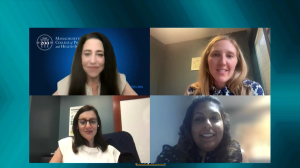
Published: August 2nd 2024 | Updated:

Published: August 2nd 2024 | Updated:

Published: August 2nd 2024 | Updated:

Published: August 2nd 2024 | Updated:

Published: June 11th 2024 | Updated:

Published: August 2nd 2024 | Updated: